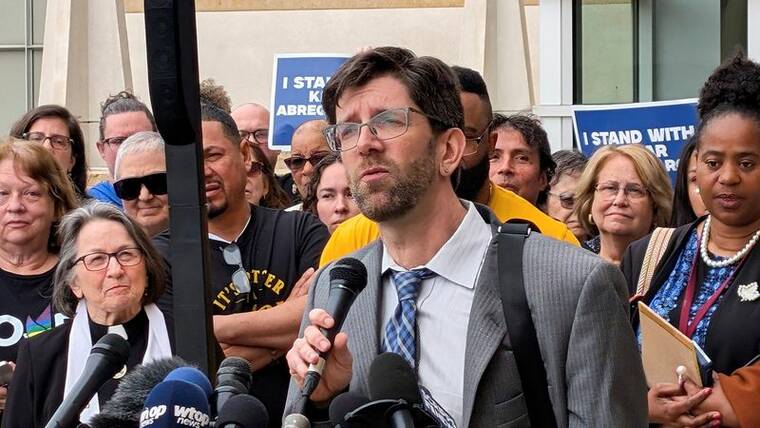Trump Administration Challenges Court’s Authority in Deportation Reversal Case
Kilmar Abrego Garcia, a Maryland father of four, was living a quiet life with his wife and kids—until immigration officers took him away and put him on a plane to El Salvador. The strange part? A judge had already ruled he should stay in the U.S.
Abrego had been granted protection from deportation after proving he faced serious threats from gangs in his home country. But in March 2025, U.S. immigration agents still deported him. The government later admitted it was an “administrative error.”
Now, the Trump administration is asking the U.S. Supreme Court to block a court order that would bring Abrego back home. And for now, the Court has agreed to pause the return.
Judges Say Bring Him Back—Trump Team Says Not So Fast
After learning what happened, a federal judge in Maryland ordered the government to return Abrego by April 7, calling the deportation a violation of his rights. The Trump administration appealed that decision, saying the courts don’t have the power to order the return of someone who’s already been deported.
When the Fourth Circuit Court of Appeals backed the lower court’s ruling, the Trump administration quickly turned to the Supreme Court.

On the very day Abrego was supposed to be back with his family—April 7—Chief Justice John Roberts temporarily paused the order. That stay gives the administration more time to argue its case, and the Court more time to decide what to do next.
The Human Cost Behind the Legal Fight
To Abrego’s family, the legal wrangling isn’t just about paperwork—it’s about reuniting a family and correcting a mistake that never should have happened.
His wife, a U.S. citizen, has been raising their children alone since his deportation. Advocates say his kids are suffering without their father, and the family lives in fear for his safety in El Salvador, where he was sent to a notorious prison typically used for suspected gang members.
“It’s a nightmare,” said one family friend. “He never should have been taken in the first place, and now they’re fighting to keep him out when it was their mistake.”
What the Government Says
Lawyers for the Trump administration argue that once someone is removed from the U.S., courts don’t have the authority to bring them back—even if the deportation was wrong. They say immigration enforcement is a matter for the executive branch, not judges.
They’ve told the Supreme Court that returning Abrego is “impossible” because it would open the door for courts to interfere in how deportations are handled nationwide.
But Abrego’s attorneys say the case is simple: a man who was legally allowed to stay was deported by mistake, and the courts have every right to make it right.
Why This Case Could Be a Big Deal
While this case centers on one man, it could end up shaping how future mistakes in the immigration system are handled. If the Supreme Court rules in favor of the Trump administration, it could limit the power of federal judges to fix wrongful deportations. If it sides with Abrego, it could set a precedent allowing courts to step in when the government makes a serious error.
Immigration advocates are watching closely. They say this case reveals the cracks in the system—how quickly lives can be upended by bureaucratic slip-ups, and how hard it can be to fix them.
What Happens Next
The Supreme Court hasn’t said when it will make a final decision, but legal experts expect more filings and arguments in the coming weeks. Until then, Abrego remains in El Salvador, and his family remains in limbo.
“We just want him home,” said his wife. “We’re not asking for special treatment. We’re asking for justice.”


Comments are closed, but trackbacks and pingbacks are open.